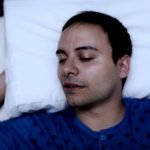Node Smith, ND
Obesity is major concern in many countries worldwide. The easy access to caloric-dense food that triggers pleasure centers in the brain creates a “obesogenic environment” that promotes eating in manners that are not conducive to a healthy life. But more than merely weight gain, overeating may be supporting cognitive and behavioral changes that further support future overeating, in a cycle that appears similar to the addiction behavior seen in drug users and alcoholics. Research along these lines may help remove the stigma from obesity, and acknowledge that it is not a condition stemming from a lack of willpower, but there may be an underlying addictive process at work.
Recent study created the type of obesogenic environment that is present in the modern industrialized world
A recent study created the type of obesogenic environment that is present in the modern industrialized world in a mouse model.1 Mice were offered the option of a high-fat “cafeteria” diet or a mixture of chopped-up commercial chocolate bars next to their regular chow. A detailed analysis of their activities before and after feeding was conducted. This study is similar to classic studies on cocaine and nicotine used to demonstrate the addictive effects of these substances.
“Long-term exposure to hypercaloric diets impair the ability to control eating behavior leading to negative effects on the cognitive processes responsible for a rational control of food intake”
The mice all became obese, and quickly began to show signs of addiction-like behavior and binge-eating in response to the pleasurable foods. For instance, when chocolate was available for just an hour during the day, they would compulsively “binge,” eating as much chocolate as they would over an entire 24 hour period if it was continuously available. They also displayed inflexibility in their behaviors, like those seen in addiction. They would sit and wait for the chocolate while absolutely ignoring the freely available standard chow. However, the chocolate never seemed to satiate hunger as effectively as the regular food. Eating times also changed, with the animals being more likely to eat when they normally would be sleeping, and to snack more frequently rather than spacing out meals.
The conclusion from the authors of the study was, “that long-term exposure to hypercaloric diets impair the ability to control eating behavior leading to negative effects on the cognitive processes responsible for a rational control of food intake.”
Study supports a growing idea that obesity is not merely a metabolic disease, but behavioral as well
This supports a growing idea that obesity is not merely a metabolic disease, but a behavioral condition as well. Addressing these abnormal eating habits in similar ways as other addictive processes may open up more effective avenues for treatment, as well as help remove the stigma that obesity is a problem of self-control.
Source:
- Espinosa-carrasco J, Burokas A, Fructuoso M, et al. Time-course and dynamics of obesity-related behavioral changes induced by energy-dense foods in mice. Addict Biol. 2018;23(2):531-543.
Image Copyright: <a href=’https://www.123rf.com/profile_kryzhov’>kryzhov / 123RF Stock Photo</a>
 Node Smith, ND, is a naturopathic physician in Portland, OR and associate editor for NDNR. He has been instrumental in maintaining a firm connection to the philosophy and heritage of naturopathic medicine among the next generation of docs. He helped found the first multi-generational experiential retreat, which brings elders, alumni, and students together for a weekend camp-out where naturopathic medicine and medical philosophy are experienced in nature. Four years ago he helped found the non-profit, Association for Naturopathic ReVitalization (ANR), for which he serves as the board chairman. ANR has a mission to inspire health practitioners to embody the naturopathic principles through experiential education. Node also has a firm belief that the next era of naturopathic medicine will see a resurgence of in-patient facilities which use fasting, earthing, hydrotherapy and homeopathy to bring people back from chronic diseases of modern living; he is involved in numerous conversations and projects to bring about this vision.
Node Smith, ND, is a naturopathic physician in Portland, OR and associate editor for NDNR. He has been instrumental in maintaining a firm connection to the philosophy and heritage of naturopathic medicine among the next generation of docs. He helped found the first multi-generational experiential retreat, which brings elders, alumni, and students together for a weekend camp-out where naturopathic medicine and medical philosophy are experienced in nature. Four years ago he helped found the non-profit, Association for Naturopathic ReVitalization (ANR), for which he serves as the board chairman. ANR has a mission to inspire health practitioners to embody the naturopathic principles through experiential education. Node also has a firm belief that the next era of naturopathic medicine will see a resurgence of in-patient facilities which use fasting, earthing, hydrotherapy and homeopathy to bring people back from chronic diseases of modern living; he is involved in numerous conversations and projects to bring about this vision.





